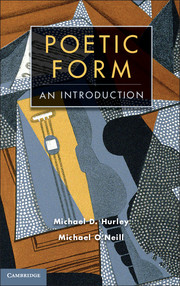Chapter 2 - Lyric
Published online by Cambridge University Press: 05 November 2012
Summary
And isn’t a song, or a poem, or indeed a speech itself, with its caesuras, pauses, spondees, and so forth, a game language plays to restructure time?
Joseph Brodsky (‘To Please a Shadow’, Less Than One)Overview
Lyric, traditionally grouped since Aristotle’s Poetics with narrative and drama as one of the three main literary kinds or genres, has been the subject of much definitional head scratching. As Scott Brewster notes at the start of a discussion which considers the many difficulties in arriving at a single, clear-cut sense of the word, ‘the term derives from the Greek word lurikos (“for the lyre”)’, and its associations with music and with the expression of strong feeling, in a structure considerably briefer for the most part than plays or narrative poems, are at the centre of this chapter’s re-consideration of the form. Lyric can co-exist with other forms and can emerge from narrative poetry, as in ‘Tears, Idle Tears’ sung in the midst of Tennyson’s The Princess (1847), or it can contribute to a drama, as in Feste’s songs in Twelfth Night; it can sustain, as in John Berryman’s Dream Songs (first group published 1964) or Tennyson’s In Memoriam, much longer structures, whose essential unit is the short poem (as will be discussed in the final section of the chapter); it can overlap with forms such as elegy or, rather, elegy can be a poetic form that participates in the generic nature of lyric.
- Type
- Chapter
- Information
- Poetic Form , pp. 53 - 75Publisher: Cambridge University PressPrint publication year: 2012



